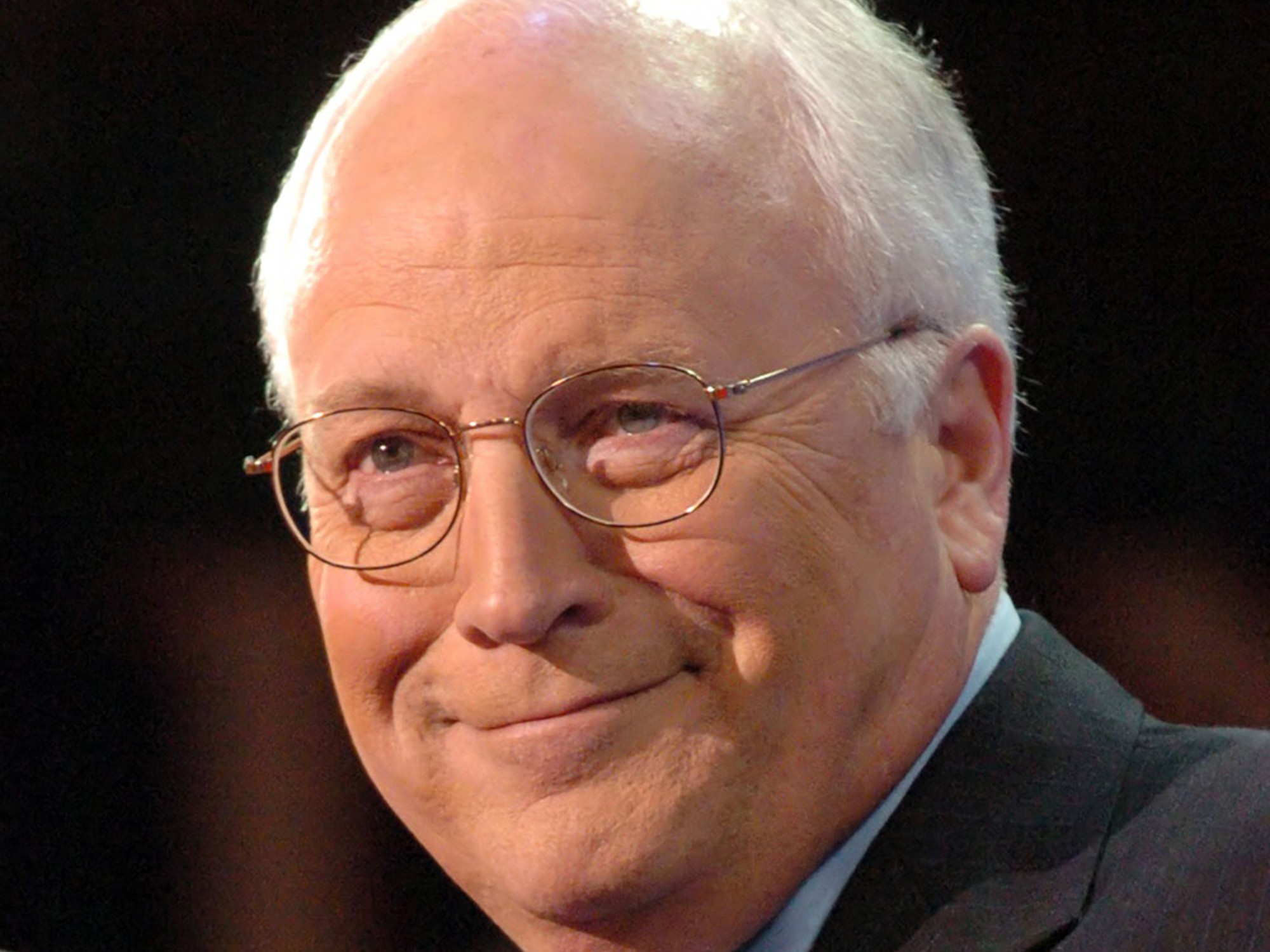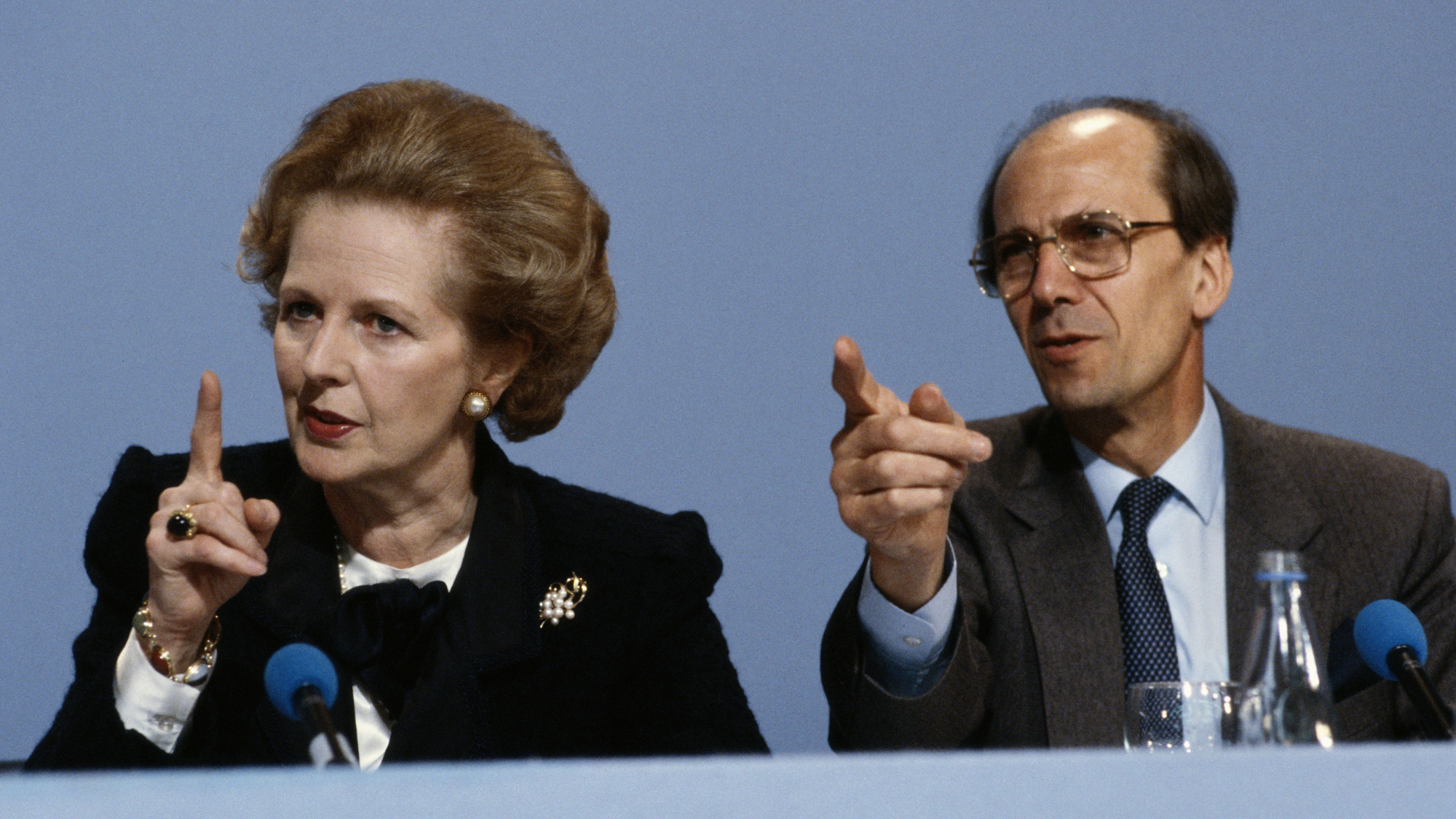Raúl Alfonsín
The Argentine president who championed democracy
A free daily email with the biggest news stories of the day – and the best features from TheWeek.com
You are now subscribed
Your newsletter sign-up was successful
The Argentine president who championed democracy
Raúl Alfonsín
1927–2009
The Week
Escape your echo chamber. Get the facts behind the news, plus analysis from multiple perspectives.

Sign up for The Week's Free Newsletters
From our morning news briefing to a weekly Good News Newsletter, get the best of The Week delivered directly to your inbox.
From our morning news briefing to a weekly Good News Newsletter, get the best of The Week delivered directly to your inbox.
Raúl Alfonsín, who has died of lung cancer at 82, was the living embodiment of Argentine democracy. In 1983, he became his country’s first popularly elected leader after decades of brutal authoritarian rule; when he left office six years later, it was the first time since 1928 that power had passed peacefully to another party. “My inspiration comes from an ethic, rather than an ideology—an ethic that believes in the freedom of man,” he said.
The short, mustachioed Alfonsín was a military school graduate who rejected army life, said the London Times. Instead, he got a law degree and became a human-rights activist. In the 1950s he joined Argentina’s Radical Civic Union, “a party with a long tradition of upholding democratic values,” eventually serving two congressional terms and becoming party leader in 1981. Jailed three times for publicly opposing Argentina’s various juntas, Alfonsín offered free legal services “to the families of people who had been kidnapped by the security forces.”
Alfonsín’s pivotal moment came with the collapse of the military government of Gen. Leopoldo Galtieri, who had launched the disastrous Falklands war in 1982, said the London Independent. In the ensuing election, Alfonsín “just squeaked by with 52 percent of the vote. But it was a watershed as chastened militarists ceded power to a moderate politician.” The new president set about “building a civic culture after years of dictatorship,” prosecuting many officials who had killed up to 9,000 civilians during Argentina’s “dirty war” against so-called subversives. But “dark military elements continued to lurk in the background.” After escaping three coup attempts, Alfonsín reluctantly halted the trials. “It was impossible to put 2,000 members of the military on trial,” he explained. “We had no weapons.” In 1989 he left office five months early amid “food shortages, street disturbances, and uncontrolled hyperinflation.”
Argentines later embraced him for his courage and enlightenment. His final public appearance was in October, when President Cristina Fernández de Kirchner unveiled a bust of Alfonsín to commemorate the 25th anniversary of his election. “You are a symbol,” Kirchner declared, “of the return of democracy.” Alfonsín is survived by his wife and six children.
A free daily email with the biggest news stories of the day – and the best features from TheWeek.com
-
 The environmental cost of GLP-1s
The environmental cost of GLP-1sThe explainer Producing the drugs is a dirty process
-
 Nuuk becomes ground zero for Greenland’s diplomatic straits
Nuuk becomes ground zero for Greenland’s diplomatic straitsIN THE SPOTLIGHT A flurry of new consular activity in Nuuk shows how important Greenland has become to Europeans’ anxiety about American imperialism
-
 ‘This is something that happens all too often’
‘This is something that happens all too often’Instant Opinion Opinion, comment and editorials of the day
-
 The billionaires’ wealth tax: a catastrophe for California?
The billionaires’ wealth tax: a catastrophe for California?Talking Point Peter Thiel and Larry Page preparing to change state residency
-
 Bari Weiss’ ‘60 Minutes’ scandal is about more than one report
Bari Weiss’ ‘60 Minutes’ scandal is about more than one reportIN THE SPOTLIGHT By blocking an approved segment on a controversial prison holding US deportees in El Salvador, the editor-in-chief of CBS News has become the main story
-
 Dick Cheney: the vice president who led the War on Terror
Dick Cheney: the vice president who led the War on Terrorfeature Cheney died this month at the age of 84
-
 Has Zohran Mamdani shown the Democrats how to win again?
Has Zohran Mamdani shown the Democrats how to win again?Today’s Big Question New York City mayoral election touted as victory for left-wing populists but moderate centrist wins elsewhere present more complex path for Democratic Party
-
 Millions turn out for anti-Trump ‘No Kings’ rallies
Millions turn out for anti-Trump ‘No Kings’ ralliesSpeed Read An estimated 7 million people participated, 2 million more than at the first ‘No Kings’ protest in June
-
 Ghislaine Maxwell: angling for a Trump pardon
Ghislaine Maxwell: angling for a Trump pardonTalking Point Convicted sex trafficker's testimony could shed new light on president's links to Jeffrey Epstein
-
 Norman Tebbit: fearsome politician who served as Thatcher's enforcer
Norman Tebbit: fearsome politician who served as Thatcher's enforcerIn the Spotlight Former Conservative Party chair has died aged 94
-
 The last words and final moments of 40 presidents
The last words and final moments of 40 presidentsThe Explainer Some are eloquent quotes worthy of the holders of the highest office in the nation, and others... aren't